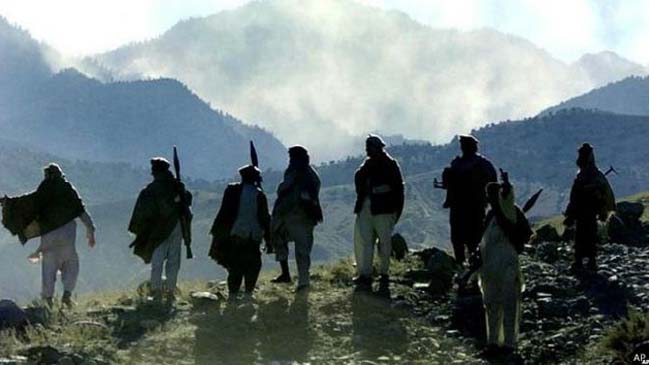Amidst increasing concerns over the possible collapse of Southern Helmand province to the Taliban, the ministries of defense and interior affairs assured the nation on Monday December 21,2015 that the province will not fall to the militant groups and reinforcement has been deployed to defend the embattled province. CEO Abdullah Adbullah also said that he is going to have a crisis meeting with the authorities of the security ministries to discuss the situation in Helmand province and consider taking immediate actions for repelling the Taliban attacks. This is while local officials in Helmand’s district of Sangin maintain that the province is still on the verge of collapse as the militants have already captured key government offices and the district’s bazaar. A security official in the district said police and army soldiers are under Taliban siege while all areas in Sangin district, including the local bazaar and all government buildings in the center of the district have been captured by the Taliban.
The situation in Helmand province bears similarities with this year’s fall of the northern city of Kunduz to the Taliban. In Kunduz, government officials responded last minute to calls from local officials for help; but the last minute efforts to repel the Taliban offensive did not help the city from falling to the militants. That was the biggest military achievement for the Taliban since 2001. Similar to what happened in Kunduz, the Taliban have managed to capture some key areas in the southern province, inching to the center of some key districts and endangering the capital city of the province. In recent days, local government officials have been urging the central government to send back up forces in the province to repel the Taliban’s fresh offensive.
What is at stake is not only some major districts but the whole province is being threatened by the militants. Also many army and police soldiers’ lives are in immediate danger if Sangin district falls to the Taliban. The district governor warned if there is no immediate reinforcement for the police and army forces in the district surrounded by Taliban, their lives would be in danger. The situation in Helmand province prompted the authorities in Kabul to assure the public that they are taking required measures in time. Ironically, the government’s assurances are coming after a local official in the province turned to facebook to ask for immediate intervention of the president.
There is need for a profound change of attitude of the government to the casual security crises that emerges across the country and the offensives of the Taliban. Afghan security agencies are now leading a reactive campaign against the Taliban’s insurgency. While the Taliban are waging a war of choice and takes the fight to the government of Afghanistan, the defense and security agencies are overwhelmed by the intensity and multiplicity of the attacks from the Taliban and other militant groups across the country. The defense and security ministries not only should be able to adapt to the war tactics of the militant groups but also take proactive measures to defend vulnerable areas such as some districts in Helmand province and many provinces and districts susceptible to the Taliban and the Islamic State group in the northern and eastern parts of the country.
The Taliban have had a very aggressive war strategy this year. The group managed to orchestrate most complicated offensives in different parts of the country. The Taliban’s offensive in the northern Afghanistan was particularly sophisticated and far-reaching. However, the main characteristic of the Taliban’s current war strategy is the group’s focus on high-valued targets such as major towns and districts and even provinces like Helmand and Kunduz. Such targets provide the Taliban a major boost in taking the insurgency to another phase and spread instability all over the country. The publicity that the Taliban needs to gain from their warfare can be best achieved from such an approach. It should be noted, however, the presence of NATO-led forces thwarted the Taliban attempt from making major gains. Previously, the Taliban largely used to focus on low-level attacks such as bombing and suicide attacks.
The new Taliban leader Mullah Akhtar Mansoor is well known for his skills in commanding and organizing a more organized insurgency by leading the war far different form his predecessor Mullah Omar. It is said that Mullah Mansoor visited Ghazni province to organize a major offensive aimed at capture of the province. In Kunduz, it was the new leader of the Taliban who orchestrated the offensive with thousands of fighters on the ground. Despite that there are now various active militant groups operating across Afghanistan, the Taliban loyal to Mullah Mansoor have upper hand among the militants, having a supremacy over the jihad in Afghanistan.
Afghanistan’s security agencies need a change of tactics in war against the militants. The government needs to have a timely and calculated analysis of vulnerable areas to offensives of the militant groups. They need to be able to mobilize forces and dispatching to vulnerable areas in a short period of time. Mobility of the army is key for success of Afghanistan’s military in the ongoing war. There were a number of military setbacks this year directly related to lately response from military headquarters. The government and the leadership of the security agencies need to learn from the war experiences this year and lead the anti-insurgency campaign differently.

